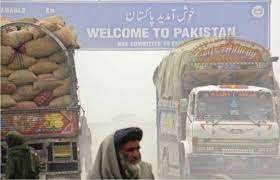Pakistan and Afghanistan reached certain agreements during trade talks in Kabul, including beginning negotiations on a revised transit trade agreement and implementing a temporary admission document (TAD) for trade vehicle drivers.
According to the Pakistan Foreign Office, Pakistan’s side is encouraged by the progress made on multiple issues and remains committed to promoting trade and people-to-people ties with Afghanistan. There have been breakthroughs in several aspects including a bilateral preferential trade agreement, air transit, the operation of border crossings 24/7 for trade purposes, and addressing the issues in transit trade that passes through Pakistan.
Pak-Afghan bilateral ties have witnessed a record low after the Afghan interim rulers refused to cooperate with Islamabad on the issue of banned terror outfits including the TTP and cross-border terrorism which persistently leashes out across Pakistan. The recent trade talks were the first major bilateral interaction between Islamabad and Kabul amid tensions following Pakistan’s airstrikes in Afghanistan’s border region against terrorist groups on March 18. Historically, both sides made significant progress on a wide range of issues. The two sides discussed a bilateral Preferential Trade Agreement, implementing a TAD for trade vehicle drivers, multimodal air transit, and issues related to transit trade.
Pakistan also expressed willingness to facilitate the transfer of goods from international containers to regional containers (cross-stuffing) in the ports of Karachi in the next six months. An agreement was also reached regarding preferential trade, where both sides will give tariff preferences to 10 items of export goods, eight of which are agricultural and two industrial. Both sides also reached a consensus on the transfer of goods through both countries’ airports in the form of multi-modal air transit, which will start in the next two months.
Meanwhile, numerous other administrative issues have also been agreed upon from both sides that will surely facilitate bilateral and transit trade and ultimately benefit both nations in the future. Today’s world, particularly the Western nations has progressed and achieved its destination through teamwork and cooperation. In the AfPak case, the decades-long relationship and brotherhood had been sacrificed just for the sake of a political agenda and narrow vision.
Peaceful coexistence, trade, and economic cooperation are the only way forward for both nations. If someone perceives this reality through dialogue, conspiracy, or waging a war. The leaders must have a broader agenda of nation-building, good neighborliness, and well-being of the entire region, otherwise, clash and chaos will not benefit either side.







